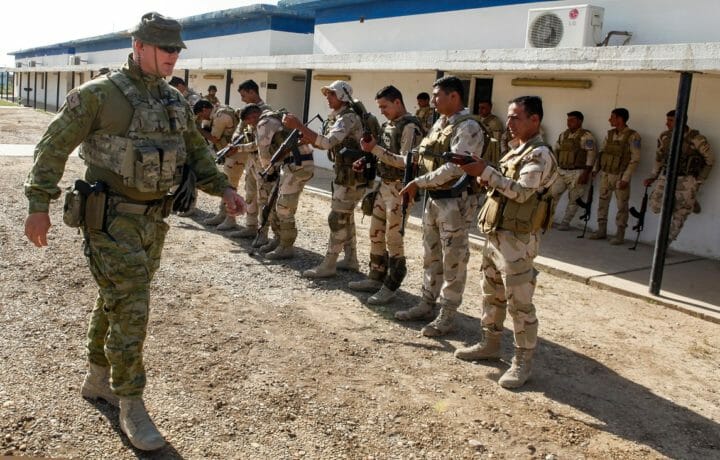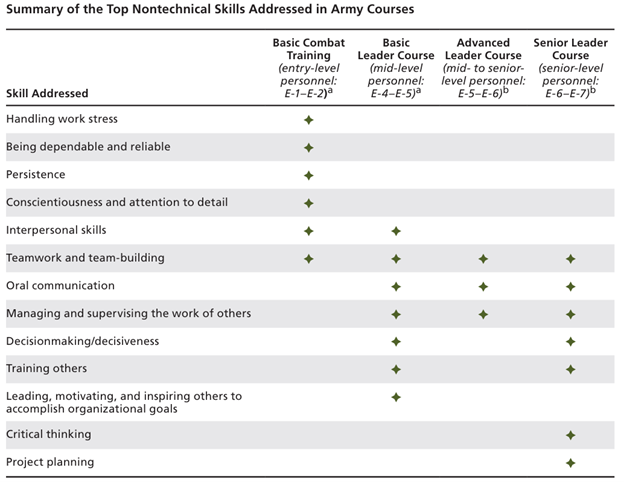It is no secret that potential employees with prior military training bring a lot of soft skills to the table. The issue is that sometimes employers have a hard time knowing just what those soft skills translate to in civilian terms. The table below shows that as soldiers progress through the ranks, they learn new soft skills with each rank progression. This can help you as an employer know that if an applicant has their rank and training listed on their resume, what that actually means in terms of soft skills that they may possess.
The soft skills are not only learned through experience, but also during training opportunities that occur during their time in the Army:
- Basic Combat Training
- Basic Leader Course
- Advanced Leader Course
- Senior Leader Course
Basic Combat Training
The goal of Basic Combat Training is to take civilian trainees from a variety of cultures and geographic locations across the U.S. and make them into not only functioning soldiers, but a functioning team … a process called soldierization. This ten-week course is designed to continuously stress trainees so that they can learn to function under the stress of combat.
Trainees are also rotated through leadership positions so that they get a taste of making decisions on the fly and leading a squad or platoon of fellow trainees for a short period of time.
Basic Leader Course
The mission for this first NCO course in the Non-Commissioned Education System is to teach how to lead a small group of fellow soldiers usually as an E-4 Corporal or E-5 Sergeant. The table shows the soft skills developed at this level of training. The 22-day course is taught in a small-group environment and is designed to transition a solider from being one of the team members to the team leader.
Advanced Leader Course
Taught at the E-5 Sergeant/E-6 Staff Sergeant level, this six-week small-group course focuses on teamwork, supervising the work of others, oral communications and attention-to-detail. This course also includes peer teaching where fellow students are required to prepare and present two classes each to the rest of the class. Practical exercises that involve collaborative planning from an assigned group enhances the teaching in this mid-level NCO course.
Senior Leader Course
This seven-week course for higher level NCOs is designed to build on the skills taught at the lower-level courses, but in the end focuses on the processes, systematic approaches, teamwork and team-building skills that adapt themselves very nicely into the civilian world of critical thinking, planning, management, problem-solving and supervisory functions.
U.S. Army Sergeants Major Academy
Select soldiers at the E-8 level must complete this course for promotion to E-9. The course is taught either as a 6-month resident course at Fort Bliss, TX or two-year non-resident – primarily home study but with 2 two-week resident sessions at Ft Bliss. This is a Master-Level degree course that only a few attend each year.
Knowing the soft skills acquired at each level during an applicant’s military career helps define the soft skills that applicant has and can help you as an employer better assess what that person could do for the company as an employee. While this article focuses specifically on the Army, the other military branches have similar courses and training for their military members which also develop their soft skills.





